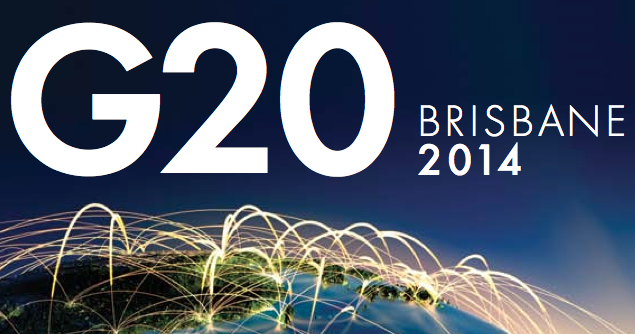G20: Through the Eyes of China

China sees the G20 as a major tool in global economic governance and as a means to strengthen the representation of developing economies in a multipolar world, writes Dr Ren Xiao.
As we all know, the G20 mechanism initially came into being after the 1997- 98 Asian Financial Crisis, primarily as a gathering of Finance Ministers and central bank governors to discuss and, if possible, coordinate their international economic policies. As such, by including major developing countries as well as developed ones, the G20 created a new perspective for the future shape of global governance. And since the G20’s inauguration in 1999, China has been an active participant, consistently sending its Finance Minister and governor of its own central bank, the People’s Bank of China, to all meetings of the G20.
A president’s vision
By 2008, when Lehman Brothers collapsed and the Global Financial Crisis was spreading and deepening, the G20 became a readily available tool for taking collective action to fight the global crisis. President Hu Jintao of China attended the first G20 Leaders Summit in Washington and gave a speech which comprehensively laid out China’s fundamental position and proposals to both fight the massive crisis and institute reform the international financial system. The speech is an important document for understanding Chinese policies, according to which reform of the international financial system should aim at establishing a new order that is fair, just, inclusive and orderly, and one that fosters an environment conducive to sound global economic development.
President Hu’s speech presented four major proposals regarding reform in line with the principles of comprehensiveness, balance, gradualism and pragmatism.
1. Reform needs to be comprehensive:
A general design is necessary which should not only focus on improving the international financial system, monetary system and international financial rules and procedures, but also take into account the stages of development and characteristics of different economies.
2. Reform needs to be balanced:
Any reforms should seek a balance among the interests of all parties, and build a decision-making and management mechanism with wider and more effective participation.
3. Reform needs to be incremental:
It should seek gradual progress and should proceed in a phased manner, starting with easier issues and achieving the final objectives of reform through sustained efforts under the precondition of maintaining the stability of the international financial market, and;
4. Reform needs to be pragmatic and stress practical results:
Overall, any reform measures should contribute to international financial stability, global economic growth and the welfare of people in all countries.
With great power comes great responsibility
China then proposed four reform measures: advancing reform of international financial organisations, increasing the representation and voice of developing countries, improving the international currency system and steadily promoting the diversity of the international monetary system. From the beginning, China underscored that when addressing the GFC, the international community should pay particular attention to the damage wreaked upon developing countries, and proposed taking measures to help developing countries maintain financial stability and economic growth.
Between the Washington and London Summits, stabilising the world economy and preventing it from further slipping into chaos were the G20’s top priorities, while reforming the international monetary system and strengthening the financial surveillance system were also put high on the agenda. China was positive about both priorities – for example, immediately prior to the London Summit, Vice Premier Wang Qishan called for the G20 to look “beyond the needs of the top 20,” believing that the developing world should have a stronger say in how the international financial system is managed. Specifically, he suggested that the G20 should focus on readjusting the governance structure of international financial institutions and increasing the representation of developing countries, calling upon the London Summit to set a clear goal, timetable and roadmap for such reform.
Give the little guys a leg-up
China has consistently emphasised the need for the G20 to help developing countries. According to Vice Finance Minister Li Yong, this includes continuing to provide development financing in order to advance an international poverty-reduction process and reduce to a minimum any future crises’ negative impact on emerging economies. This required strengthening the capacity- building of development institutions, making sure that implementation of the Millennium Development Goals was unaffected, and achieving the goal developed countries have committed to of providing 0.7% of national income in official development assistance. Developed countries should not reduce the assistance they offer to the developing world due to a crisis, should continue to write off debts that developing countries owe them, and transfer technology jointly to promote global poverty reduction and development.
Likewise, the capacity of multilateral development banks (such as the World Bank) should be increased to better assist developing countries in dealing with crises. Those institutions should keep to their mission of poverty reduction and sustainable development, enhancing capital adequacy and increasing anti-cycle capability. By simplifying loan conditionality and developing highly practical aid tools, those institutions should help countries in need to meet challenges such as capital outflow and impediments to trade financing. Developing countries can be assisted in crises through continuing to deepen international economic and trade cooperation and opposing trade protectionism. The rise of protectionism would seriously weaken the trend toward global economic recovery, obstructing the process of poverty reduction and sustainable development. Countries should work together to limit the negative impact of financial crisis on international trade and maintain its healthy and stable development.
Why the G20 works and where it can improve
For China, a healthy advancement of the G20 is desirable for four reasons…
First, the G20 is an important platform. It emerged against a backdrop of widely- perceived Western responsibility for the outbreak of the GFC, to which the G8 was unable to adequately respond. With the G20’s creation, for the first time we saw major developing countries engaged in global economic governance on a more equal footing. This was a significant development and provided a rare opportunity for major emerging countries, which is why China will continue to actively participate in the process.
Second, the elevation of the G20 is a favourable development for emerging economies. Given that both China’s comprehensive national power and international status are growing, no matter what form global economic governance takes in the future, China’s participation is inevitable. Since the United States and Europe hope to enlist China’s cooperation, Beijing is in an advantageous position. On the whole, there are more gains to be had in choosing the G20 and in participating in global economic governance on an equal footing. Through participation, emerging economies will obtain more representation and a strong vantage point.
Third, the G20 must be realised as an effective, long-term mechanism. After the Pittsburg Summit, the G20 started a process of establishing regulations and building institutions (“jianzhang lizhi”) and entered into a transition from crisis-response to becoming a long-term mechanism for achieving effective global economic governance. This development has far- reaching implications – it has removed developed countries’ historical monopoly over international economic affairs and has helped to upgrade developing countries’ discursive power. It is beneficial for China to participate in global governance on a wider platform and to defend its own legitimate interests, as well as those of many other developing countries.
Fourth, there are outstanding questions that need to be resolved. Most obvious is the issue of G20’s legitimacy – the concerns of non-G20 nations need to be addressed and their interests taken into consideration. However, the G20 must also be seen as effective. In the past, it’s been hasty in its response to emergencies, and when the GFC subsided, clashes of different interests and aspirations re-emerged, posing challenges for G20 states in coordinating their actions and policies on global economic affairs. Another issue concerns power distribution – there is a clear need to establish schemes for improved financial regulation, share management and voting power distribution in international financial institutions (IFIs). Beijing is aware that this will take time and will involve a long, complex and even tortuous process. This has already been evidenced by the intense controversies surrounding China’s exchange rate policy, especially before the Seoul Summit. All three questions remain to be addressed at the G20’s 2014 Summit in Brisbane.
A step in the right direction
In short, China sees the G20 as an irreplaceable mechanism in today’s world. China wants the G20 to be consolidated in its status as the premier global economic governance platform and hopes to turn China’s influence into institutional power. By adequately and reasonably taking advantage of its newly increased institutional power within the International Monetary Fund and World Bank, which has yet to materialise, Beijing hopes to safeguard and expand its development interests and to shape a favorable institutional environment for its participation in international economic cooperation at a higher level. This serves China’s goal of supporting a shift in the balance of global influence toward multipolarity.
Dr Ren Xiao is Director of the Centre for the Study of Chinese Foreign Policy, Fudan University, Shanghai.
This is an extract from G20: Words into Action Brisbane 2014, to be published by Faircount Media in association with the Australian Institute of International Affairs in October 2014.




